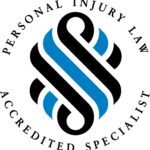Once the insurer has received an initial notification of an injury, it must start provisional weekly payments within seven days unless it has a reasonable excuse not to.
- What does provisional liability cover?
The insurer may make provisional payments before it determines liability to cover:
- up to 12 weeks of payments for loss of income
- up to $10,000 for reasonably necessary medical treatment.
The acceptance of liability on a provisional basis gives insurers more time to make a formal liability decision regarding a claim.
Provisional liability allows the insurer to provide the worker with financial assistance and early intervention while they undertake any necessary investigations and determine liability.
Provisional liability applies differently to weekly payments and medical expenses.
Starting provisional weekly payments and medical expenses does not mean the insurer or employer admits liability for the injury. However, early medical or treatment intervention has been shown to achieve better return to work outcomes for the worker.
- Provisional liability timeframes
A provisional liability decision can last for up to a maximum of 12 weeks of payments.
Provisional liability may be accepted for the maximum period or for a shorter time. If accepted for less than 12 weeks it can be extended, but not past the 12-week maximum period.
Insurers have until the end of the provisional liability period to make a formal liability decision. However, provisional liability acceptance does not prevent insurers from making a formal liability decision earlier in this period.
Insurers are expected and encouraged to make a formal liability decision as soon as they have enough information to do so.
- Provisional weekly payments
If a claim for weekly payments is the first notification the insurer receives regarding an injury to a worker, then the insurer is required to treat the claim as if it were an initial notification of injury and commence provisional weekly payments within seven days of being notified.
The only circumstances in which an insurer can refuse to commence provisional weekly payments are if the insurer:
- has one or more ‘reasonable excuses’ for not making provisional payments as provided in Part 2 of the Workers Compensation Guidelines (the Guidelines), or
- accepts full liability (commencing payments accordingly), or
- issues a notice to dispute liability.
Provisional medical expenses
The insurer can also commence payments for medical expenses on a provisional basis.
The Guidelines set the monetary limit (currently $10,000) up to which insurers may pay under provisional medical expenses. The insurer must make a formal liability decision before the monetary limit is reached in order to pay medical expenses beyond the limit.
Unlike provisional weekly payments, provisional medical expenses cannot be ‘reasonably excused’ by the insurer.
However, treatments must be either:
- pre-approved as per the Guidelines, or
- approved as ‘reasonably necessary’ by the insurer.
An insurer is required to determine liability for medical expenses the worker has claimed within 21 days.
- After liability is accepted on a provisional basis
As soon as practicable, after commencing provisional weekly payments, the insurer must provide the worker with a written notice advising:
- weekly payments have commenced on a provisional basis
- the number of weeks of provisional weekly payments (up to a maximum of 12) the insurer has approved to pay (having regard to the nature of the injury and the period of incapacity)
- that if required, the insurer will develop an injury management plan for the worker
- how to make a claim.
The written notice should also include:
- the worker’s pre-injury average weekly earnings (PIAWE)
- the amount of weekly payment and how that amount has been calculated (including a copy of the completed PIAWE form where one has been provided)
- who will pay the worker (either the employer or the insurer)
- what to do if the worker disagrees with the amount or does not receive payment
- details of any outstanding information required from the worker in order for weekly payments to continue.
After accepting provisional liability, the insurer will then continue investigating the claim in order to accept or deny liability.
- Worker obligations once provisional payments start
Once the insurer starts paying provisional weekly payments, they may require the worker to provide:
- a certificate of capacity certifying the worker’s incapacity for work, and/or
- a signed form of authority to allow the insurer to obtain information from treatment and service providers about the injury.
The insurer may stop provisional weekly payments if the worker does not supply the above within seven days of the request being made.
- When an insurer does not act within seven days of a notification
If an insurer fails to commence weekly payments within seven days of receiving a notification of injury and does not have a ‘reasonable excuse’ for doing so, the worker may seek resolution by contacting the insurer in the first instance.
- Stopping provisional payments
Provisional weekly payments can be stopped if:
- the worker returns to work before the provisional payments end and faces no ongoing loss of earnings, or
- liability for the claim for weekly payments is accepted or disputed.
The insurer can stop provisional medical payments if:
- the worker is not seeking any further medical treatment for the injury, or
- liability for the medical expenses claim is accepted or disputed.
If your claim has been provisionally accepted contact Rita Palazzolo on 0404 09 33 74 or email rita@rplawyer.com.au for a no obligation discussion as to your rights and entitlements.


